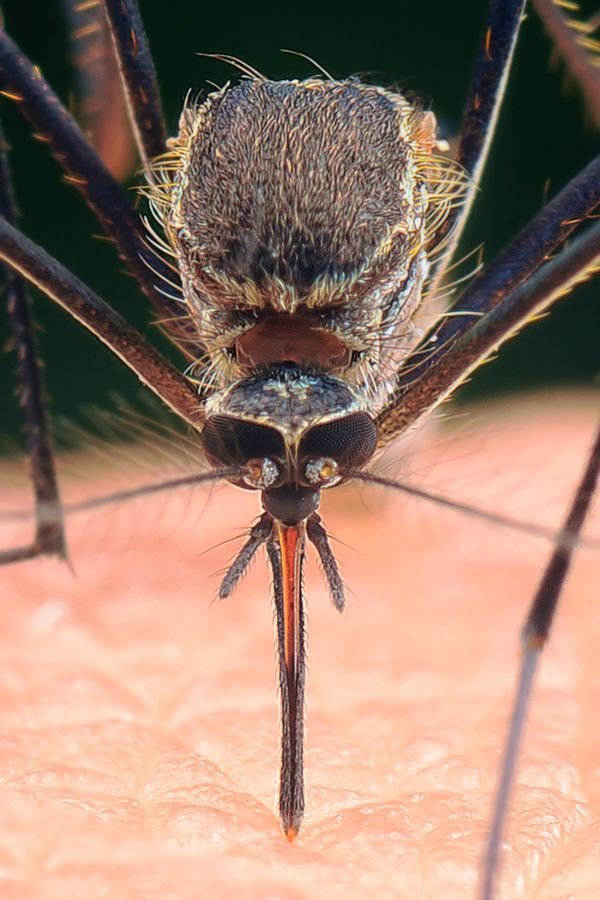
A mosquito-borne virus has put several Massachusetts towns on high alert, prompting health officials to issue warnings about the potentially deadly risks associated with it. The virus in question is the Eastern Equine Encephalitis (EEE) virus, a rare but serious illness that can cause severe brain inflammation. Massachusetts has experienced periodic outbreaks of EEE in the past, but recent reports suggest that the virus could be making a more aggressive return.
Background on Eastern Equine Encephalitis (EEE)
Eastern Equine Encephalitis is transmitted through the bite of an infected mosquito. The virus is primarily found in freshwater swamps in the eastern United States, and it is most prevalent from late summer to early fall. While many infected individuals may not exhibit symptoms, those who do can experience a rapid onset of fever, headache, chills, and vomiting. The virus can then progress to more severe neurological symptoms such as seizures, confusion, and even coma.
EEE has a high mortality rate; approximately 30% of people who contract the virus die, and many survivors suffer from long-term neurological problems. Because of its severity and the lack of specific treatment or vaccine, preventing mosquito bites is crucial.
Recent Developments in Massachusetts
In response to the rising concern, the Massachusetts Department of Public Health (DPH) has raised the risk level for EEE in several towns. This decision comes after the discovery of EEE-positive mosquitoes in multiple locations across the state. Health officials are urging residents to take precautions, especially in areas where the risk is classified as "high" or "critical."
The towns currently on high alert include areas within Bristol, Plymouth, and Worcester counties. In these regions, local authorities have implemented mosquito control measures such as aerial spraying of insecticides. These efforts aim to reduce the population of mosquitoes and minimize the chances of EEE transmission.
Precautionary Measures for Residents
The DPH is advising residents in affected areas to avoid outdoor activities during peak mosquito hours, which are typically from dusk to dawn. If outdoor activities are necessary, people are encouraged to wear long sleeves, pants, and use insect repellent containing DEET, picaridin, or oil of lemon eucalyptus. Additionally, residents are urged to ensure that their homes are mosquito-proof by repairing window and door screens and eliminating standing water where mosquitoes can breed.
Community Response and Concerns
The heightened risk of EEE has understandably caused concern among Massachusetts residents, particularly those with young children, elderly family members, or individuals with compromised immune systems, who are more vulnerable to severe outcomes from the virus. Some parents are reconsidering outdoor activities for their children, and local sports leagues have rescheduled evening games to avoid the high-risk periods.
Local health departments are working closely with schools and community organizations to disseminate information about the risks of EEE and the importance of preventive measures. Public awareness campaigns have been launched to educate residents about the symptoms of EEE and the steps they can take to protect themselves and their families.
Long-Term Implications
The re-emergence of EEE in Massachusetts highlights the broader issue of mosquito-borne diseases in the United States. Climate change, with its associated warmer temperatures and altered precipitation patterns, is likely contributing to the increased activity of mosquitoes and the expansion of their habitats. This has raised concerns among public health officials about the future spread of not only EEE but also other mosquito-borne viruses such as West Nile Virus and Zika.
The state's response to the current EEE threat includes not only immediate mosquito control measures but also long-term strategies to monitor and predict mosquito populations and the spread of mosquito-borne diseases. This may involve enhanced surveillance efforts, research into more effective mosquito control technologies, and increased public education on how to reduce mosquito exposure.
Conclusion
Massachusetts towns are taking serious steps to mitigate the threat posed by the EEE virus, a dangerous mosquito-borne illness with potentially fatal consequences. Residents are urged to remain vigilant, follow the guidance of health officials, and take all necessary precautions to protect themselves and their communities. While the immediate focus is on reducing the risk of EEE transmission, the situation also serves as a reminder of the broader challenges posed by mosquito-borne diseases and the need for ongoing public health efforts to address these threats.